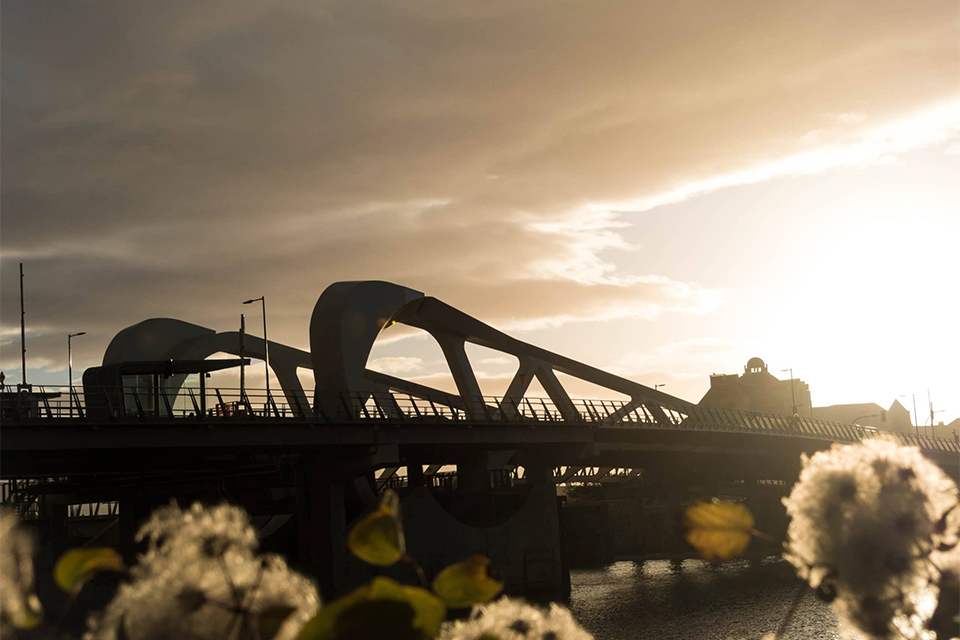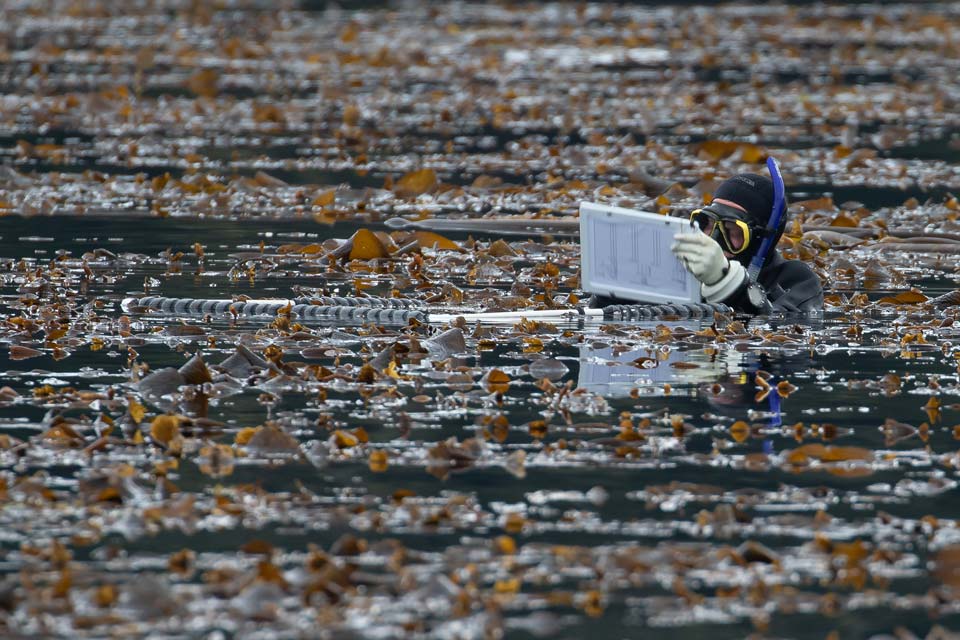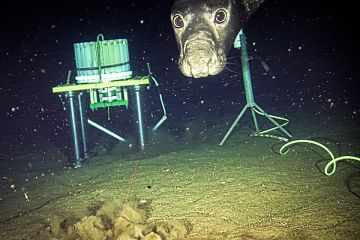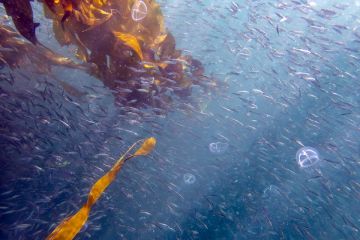What does Greater Victoria need for long-term economic growth?
- Kim Dias

In March 2020, the COVID-19 pandemic led the government of British Columbia to declare a 14-day state of emergency. Just a month later, South Island Prosperity Partnership (SIPP) launched the Rising Economy Taskforce to aid Greater Victoria’s economy in recovering from the pandemic. As an internationally-renowned teaching and research hub that continually works to improve lives both globally and in our local communities, UVic is uniquely situated to help meet these goals.
"The University of Victoria is a tremendous asset to the South Island region," says Emilie de Rosenroll, CEO of South Island Prosperity Partnership and chair of its Rising Economy Taskforce. "As a globally recognized leader in post-secondary education, UVic's contribution to the Rising Economy Taskforce has brought us deep insights into the future of the education and training sector and the vital role post-secondary institutions play in economic development. Growing our people to be the best they can be is an essential part of creating a resilient economy for everyone."
The Rising Economy Taskforce’s recommendations, released this week, were put together after several months of extensive research, analysis and consultation. The report captures top priorities and actions community, business, academic and government leaders can take over periods stretching from six months to over two years. These ideas are currently being discussed in Rising Economy Week, a five-day virtual program that features discussions with experts in economic development, business, entrepreneurship, innovation, urban development, education and more.
Several members of the UVic community were part of the Rising Economy Taskforce. Following initial work done by then-UVic President Jamie Cassels and his team, current President Kevin Hall has become a key part of the discussion in Cassels’s stead. Hall speaks Friday at the “Future of Higher Education: Rising to Disruption” panel during Rising Economy Week.
UVic contributes significantly to the success of the region and we engage deeply with our local community. Through involvement with the South Island Prosperity Partnership, we will continue to work with our partners to build on that success and to develop forward-looking, innovative solutions that ensure the social and economic recovery of the south island.
—UVic President Kevin Hall
Pillars of recovery
During its period of extensive research and consultation, the Rising Economy Taskforce took the recommendations from this work and categorized them across ten pillars. Four of these build directly on UVic’s strengths:
- Invest in Inclusion
- Invest in Innovation Ecosystems
- Invest in the Future Workforce
- Invest In Digital Infrastructure Access to Close the Divide
With a strong emphasis on Indigenous voices and research, creativity and innovation across its 10 faculties—in addition to strong mentorship and community-engaged learning programs—UVic has already begun to take steps to build back the economy of Greater Victoria.
Innovation and the future
The SIPP report’s Invest in Innovation Ecosystems pillar aims to support innovation across sectors, helping businesses and communities respond more quickly to disruptions such as the COVID-19 pandemic. It also encourages sustainable business growth, new products and ideas, and research and development. UVic is a leader or support in several of in these recommendations. These include a recommendation to increase funding to the Coast Capital Innovation Centre, UVic’s on-campus venture incubator, which mentors and supports entrepreneurs in every stage of the process.
UVic is also a leader or major support in most of the Invest in the Future Workforce recommendations. Dynamic learning, for example, is an integral part of the UVic experience—taking students beyond the classroom and into the real world, where they gain invaluable experience and learn how to turn ideas into action. UVic’s experience and infrastructure in this area will be essential in the SIPP report’s recommendation to establish a future skills alliance for the south island—including prioritized support for greater work-integrated learning opportunities such as UVic co-ops.
The Blue Economy

Canada has the world’s longest coastline, and as such, is in a unique position to support and enhance the blue economy—the sustainable use of the ocean for economic growth. Greater Victoria is on the cusp of that breakthrough, thanks in part to UVic’s decades-long investment in ocean research and monitoring systems, including its Ocean Networks Canada (ONC) initiative.
Experts predict that the blue economy will grow in strength and importance over the years, reaching a value of $3 trillion by 2030. The Rising Economy Taskforce is working to support this growth—and Greater Victoria’s contribution to the effort—by establishing an Ocean and Marine Innovation Hub on southern Vancouver Island.
Kate Moran, President and CEO of ONC, will also speak at a Friday panel about this horizon of change—“The Blue Economy: The Ocean as Our Next Frontier”—during Rising Economy Week.
The accelerating blue economy will be spurred by public demand for green economic investment, which includes transitioning to zero-carbon marine transportation, establishing ecosystem-based aquaculture management, delivering ocean-based climate adaptation solutions, installing and operating ocean renewable energy systems, and operating ocean-based carbon dioxide removal systems.
—Kate Moran, President and CEO of Ocean Networks Canada
UVic is working to make the blue economy a more tangible reality in Greater Victoria through their work with ONC. UVic will add to that effort by supporting a recommendation to create a work placement program for the ocean and marine sector. UVic has one of Canada’s largest university co-operative education programs; 75% of co-op students graduate with job offers, and UVic grads are ranked as the best-prepared for the workforce of any Canadian comprehensive university. That leadership puts UVic in a strong position to build even more work-placement programs that benefit students, businesses and the Greater Victoria community.
Inclusivity is the way forward
COVID-19 has exposed the gaps in society. Pre-existing inequalities have worsened, vulnerable groups are even more vulnerable, and those lacking digital literacy and easy access to technology have suffered.
But COVID-19 also offers opportunities.
The Rising Economy Taskforce embraces the “build back better” approach to this crisis. Just as COVID-19 cast light on the gaps in society, on inequalities and those who are more vulnerable, it is also an opportunity to be proactive in building a better society.
UVic’s core values emphasize equality, inclusivity and building a better, more sustainable future. And its work in the Rising Economy Taskforce is a glance forward, to seeing those values realized, working collaboratively with the region’s stakeholders to advance the prospects of Greater Victoria, its economy and its people.
Photos
In this story
Keywords: oceans, research, Coast Capital Innovation Centre, administrative
People: Kevin Hall, Kate Moran
Publication: The Ring






